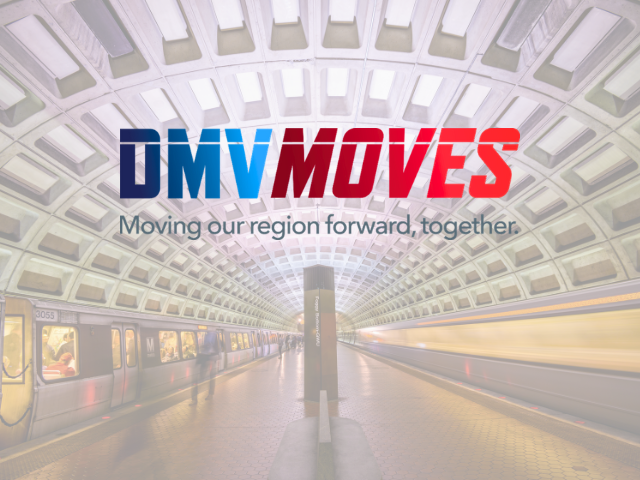
Metro is fundamental to metropolitan Washington’s mobility, economy, and sustainability, and COG has a long history of helping ensure the system is in a strong position to serve the region.
DMVMOVES
Following the successful coordination to address Metro’s FY 2025 budget deficit, area officials called for a more comprehensive effort to focus on long-term transit needs and the longstanding, systemic funding challenges facing Metro and the region’s other transit systems. In May 2024, the COG and Metro Boards of Directors held a historic joint meeting and agreed to partner on a new initiative, DMVMoves, to create a unified vision and sustainable funding model for the region’s transit network.
The DMVMoves Task Force, composed of officials appointed by COG and Metro, guided this initiative alongside two advisory groups representing area jurisdictions, transit service providers and agencies, and business, labor, and community organizations.
In November 2025, following 18 months of discussion, debate, and consensus building, the COG and Metro boards jointly endorsed recommendations from the DMVMoves Task Force, calling on area leaders to advance funding solutions to support Metro’s long-term modernization and advance a set of actions to better integrate and strengthen coordination among the region’s 14 transit operators, including Metro, MARC, VRE, and local bus systems. A key proposal includes $460 million in new annual capital funding for Metro, beginning in Fiscal Year 2028.
Following the endorsement, officials are now focused on advancing the DMVMoves recommendations and seeking the enactment of funding legislation by the DC Council and the Maryland and Virginia state legislatures. To learn more, visit the DMVMoves website.
PAST INITIATIVES
After the debut of Metrorail and amid concerns about future construction costs, COG and the Transportation Planning Board carried out a major analysis in 1976 of the costs of completing the original 103-mile system. The Metrorail Alternatives Analysis concluded that finishing the rail system would be a sound investment and was the first of several major studies regional leaders asked COG to undertake, such as the reports of the Blue Ribbon Metro Funding Panel in 2005 and the Joint WMATA Governance Review Task Force in 2010.
COG helped the region forge consensus and lay the groundwork for a dedicated capital funding agreement in 2018 along with public, private, and civic sector partners. In addition, COG worked with state and federal partners to create the Washington Metrorail Safety Commission and has coordinated with Metro and area fire departments to develop safety protocols and improved emergency communications.